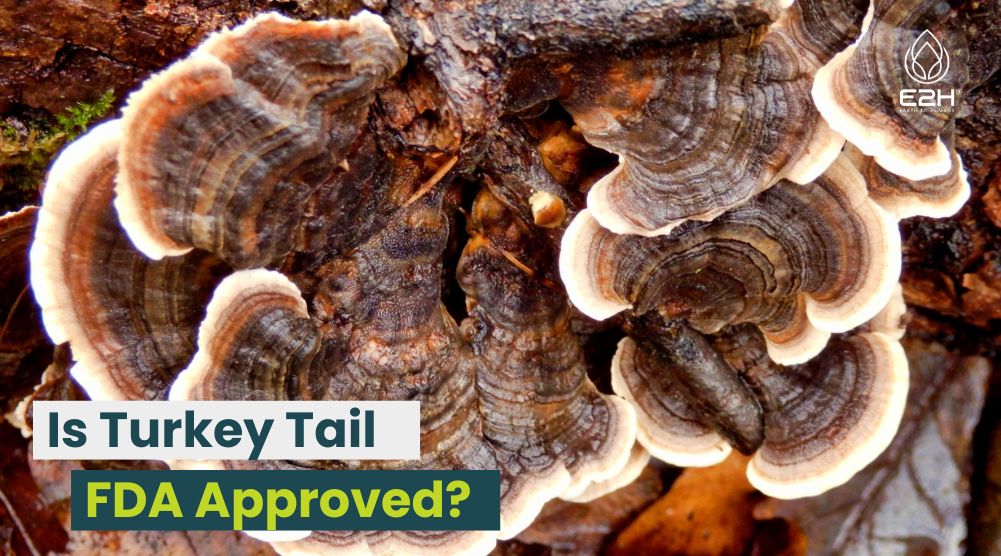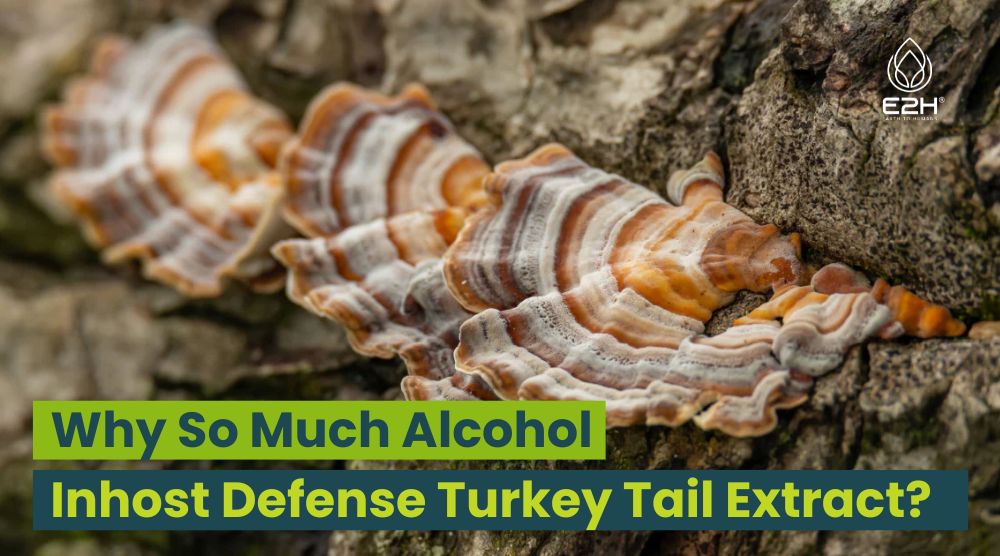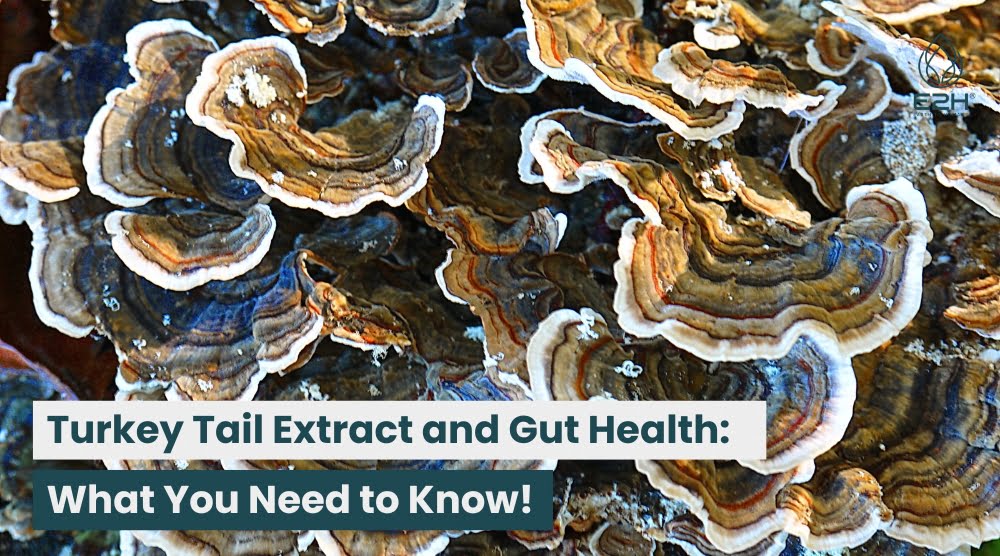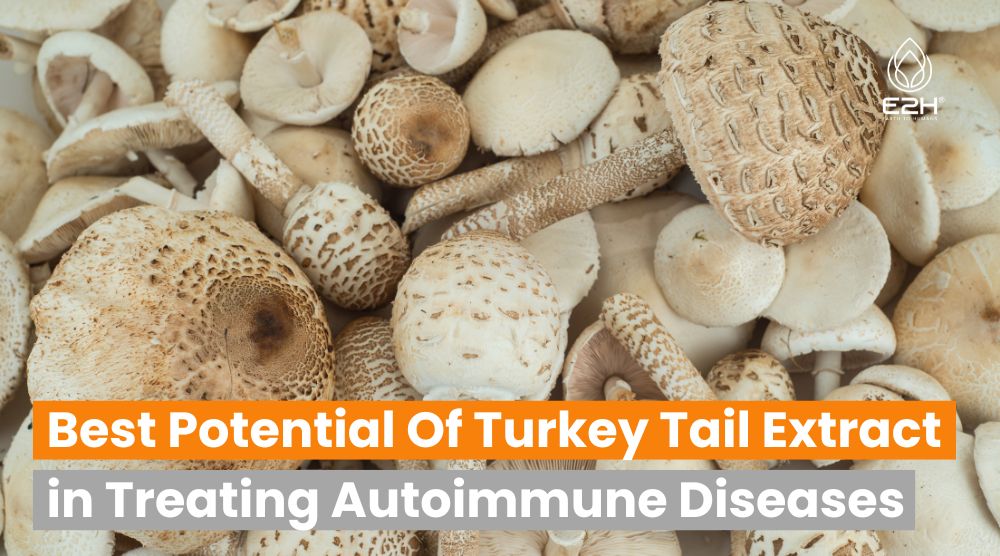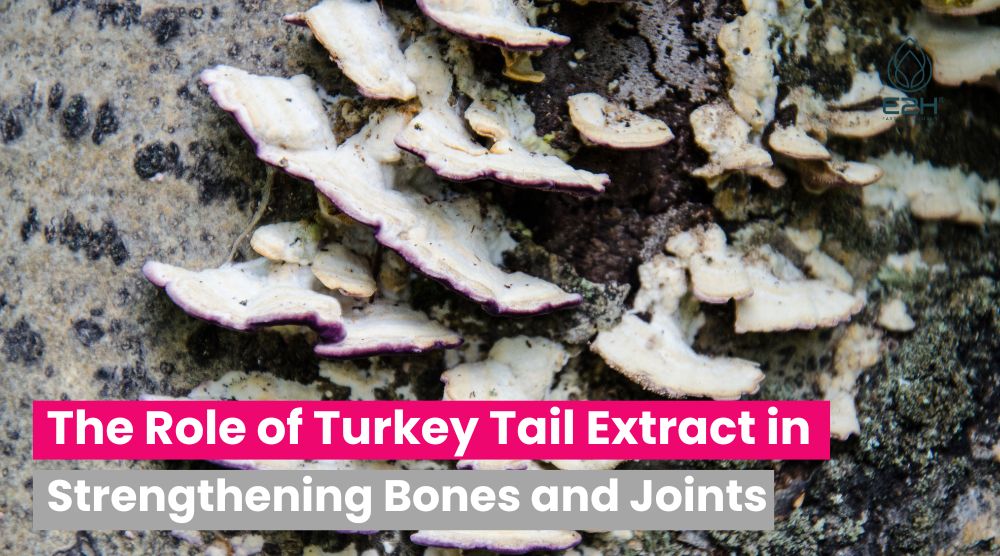Is Turkey Tail FDA Approved: The Food and Drug Administration (FDA) does not approve dietary supplements, including turkey tail mushrooms.
However, there is some research that suggests turkey tail may have potential health benefits, such as supporting the immune system and fighting cancer. More research is needed to confirm these benefits and to determine the safety and effectiveness of turkey tail for human consumption.
Turkey Tail and Its Health Benefits
Turkey tail mushroom is a natural product known for its vibrant colors and concentric rings on the cap, resembling the pattern found on the tail feathers of a wild turkey. Beyond its aesthetic appeal, the turkey tail mushroom has been a subject of interest due to its potential health benefits.

Research suggests that turkey tail contains bioactive compounds, including polysaccharopeptides, polysaccharides, and beta-glucans, which have been linked to various immune function-enhancing properties. These compounds may help stimulate the immune system, and immune function, making turkey tail a subject of interest in supporting overall health, immune system function and wellness.
Additionally, the turkey tail mushroom has attracted attention for medicinal mushrooms and its potential anti-cancer properties. Some studies have shown that the turkey tail mushroom’s bioactive compounds may possess anti-tumor effects and could be used as an adjunct therapy in cancer treatment. However, further research is still needed to fully understand and validate medicinal mushrooms and these potential benefits in radiation therapy.
FDA Approval Status of Turkey Tail
It is essential to differentiate between dietary supplements and drugs when discussing FDA approval. Dietary supplements, such as turkey tail extracts or powders, fall under a different regulatory category compared to prescription drugs though. While drugs require FDA approval before they can be marketed and sold, dietary supplements do not undergo the same approval process.
Currently, turkey tail is not FDA approved as a drug for the treatment of colon or lung cancer or breast cancer cells treat any specific medical condition. However, it is important to note that the FDA does not regulate dietary supplements in the same way it does drugs. Instead, the FDA monitors the safety and labeling of dietary supplements, and manufacturers are responsible for ensuring the quality and integrity of their products.
Clinical Trials and Ongoing Research
Clinical trials play a vital role in conventional medicine and in evaluating the safety and effectiveness of potential treatments, including natural products like turkey tail. Although turkey tail is not FDA approved as a drug, there have been ongoing clinical trials and research studies examining its effects on various health conditions, particularly in women with breast cancer and itself.
Several studies have explored the potential benefits of turkey tail extracts in clinical trial in conjunction with standard cancer treatments. These trials aim to assess the medicinal mushroom that’s impact on the immune system response, tumor growth inhibition, and overall patient outcomes advanced prostate cancer patients. While the results of these trials are promising, it is important to await further research and larger-scale studies to draw definitive conclusions.
Safety Considerations and Potential Side Effects
When considering any dietary supplement or natural remedy, it is crucial to be aware of potential safety considerations and side effects. Turkey tail is generally considered safe for most individuals when consumed in appropriate amounts. However, some individuals may experience mild side effects such as digestive discomfort or allergic reactions.

As with any supplement, it is advisable to consult with a healthcare professional before starting any new regimen, especially if you have any underlying medical conditions or are taking other medications. They can provide personalized advice based on your individual circumstances and guide you on the safe and appropriate use of turkey tail or any other dietary supplement.
Seeking Professional Advice
While turkey tail and other natural remedies may offer potential health benefits, it is important to approach their usage with caution. The FDA does not regulate dietary supplements for efficacy in the same way it does drugs. Therefore, seeking guidance from healthcare professionals is crucial to ensure your safety and well-being.
If you are considering using turkey tail or any other dietary supplement, consult with a qualified healthcare provider. They can help assess your specific needs, discuss potential interactions with other medications, and provide guidance on appropriate dosages. Remember, professional advice is invaluable when it comes to making informed decisions about your health.
Are turkey tail mushrooms supplements safe?
Turkey tail mushrooms supplements that are generally considered safe for most individuals when consumed in appropriate amounts. The turkey tail mushroom extract by itself has a long history of traditional use and is recognized for its potential health benefits.
However, as with any dietary supplement, it is important to ensure that you purchase from reputable manufacturers who follow good manufacturing practices. Additionally, it is advisable to consult with a healthcare professional before starting any new supplement regimen, especially if you have underlying health conditions or are taking medications. They can provide personalized advice based on your individual circumstances.
Can you take turkey tail if you don’t have cancer cells?
Yes, you can take turkey tail even if you don’t have cancer cells. While turkey tail has gained attention for its potential anti-cancer properties and its use as an adjunct therapy in cancer treatment, it is not exclusively a cancer treat limited to colon cancer cells or cancer patients only. Turkey tail is also known for its potential immune system-boosting properties and overall health benefits.

Many individuals incorporate turkey tail supplements into their routine to support their immune systems’ function and overall well-being. However, as always, it is advisable to consult with a healthcare professional before starting any new supplement to ensure it aligns with your specific health needs.
Does Turkey Tail Extract have any benefits for chemo patients?
Turkey edible mushrooms and turkey tail fungus extract has shown potential benefits for chemo patients. Research suggests that turkey tail mushrooms contain bioactive compounds that may help strengthen the immune system and reduce some of the side effects associated with conventional chemotherapy alone, adverse effects such as nausea, fatigue, and weakened immunity.
Additionally, turkey tail extract may have anti-inflammatory properties, which can aid in the management of inflammation-related symptoms. However, it is important to note that turkey tail mushrooms and turkey tail fungus extract should be used as a complementary approach alongside conventional medical treatment, and individuals should consult with their healthcare providers before incorporating it into their regimen.
How can turkey tail mushrooms help breast cancer patients?
Turkey tail mushrooms have been the subject of research regarding their potential benefits for both breast cancer and colon cancer therapy in patients. Studies suggest that the bioactive compounds in turkey tail mushrooms, particularly polysaccharopeptides and beta-glucans, may exhibit anti-cancer properties. These compounds have been found to potentially enhance the immune response and inhibit the growth of cancer cells.
Additionally, turkey tail medicinal mushrooms also may help mitigate some side effects of breast cancer and colon cancer cells and treatments, such as immunosuppression and gastrointestinal issues. However, it is crucial to note that turkey tail mushrooms should not be used as a replacement for standard medical treatments, and individuals should consult their healthcare providers for personalized advice.
Do you know about Turkey Tail Mushrooms?
FAQs
Is turkey tail safe to consume?
Turkey turkey tail mushroom supplements uses is generally considered safe for most individuals when consumed in appropriate amounts. However, it is advisable to consult with a healthcare professional before starting any new regimen, even turkey tail mushroom supplements, especially if you have any underlying medical conditions or are taking other medications.
Can turkey tail treat lung cancer?
While turkey tail has shown potential anti-cancer properties in some studies, it is not FDA approved as a drug for cancer treatment. Ongoing research and clinical trials are being conducted to further explore its effects on both colon cancer and breast cancer cells, and its role in adjunct therapies for lung cancer patients.
Are there any side effects of turkey tail?
Some individuals may experience mild side effects such as digestive discomfort or allergic reactions when consuming turkey tail. It is important to be aware of your body’s response and consult a healthcare professional if you have any concerns.
Does the FDA regulate dietary supplements like turkey tail?
The FDA regulates dietary supplements in terms of safety and labeling but does not evaluate them for efficacy in the same way it does drugs. Manufacturers are responsible for ensuring the quality and integrity of their dietary supplement products.
Conclusion
In summary, the turkey tail mushroom is a type of mushroom that has gained popularity due to its potential health benefits. However, it is important to note that turkey tail is not FDA approved as a drug for the treatment of any specific medical condition. While ongoing research and clinical trials continue to shed light on this medicinal mushroom and its potential benefits, it is advisable to seek professional advice before incorporating turkey tail or any other dietary supplement or medicinal mushrooms into your routine. By consulting with healthcare professionals, you can make informed decisions regarding your health and well-being.
